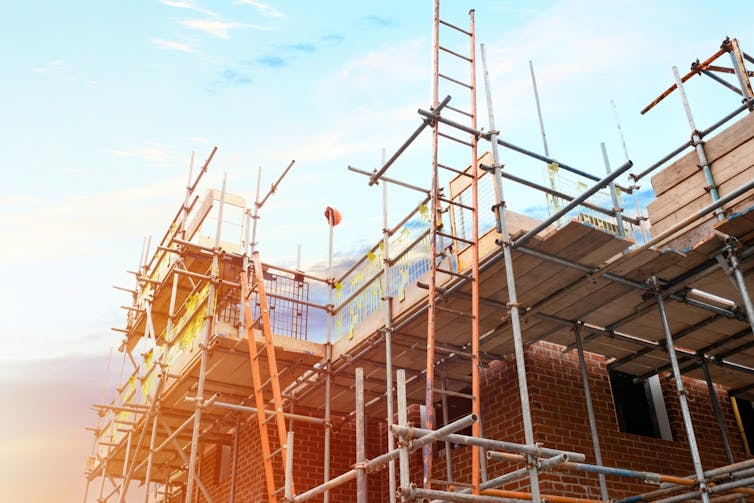Spending review delivers big boosts for health and defence – but Rachel Reeves is focused on investment
- Written by Linda Yueh, Fellow in Economics/Adjunct Professor of Economics, University of Oxford

UK chancellor Rachel Reeves has delivered the government’s spending review, setting out its plans and priorities for the next three years. The aim of the review is of course to allocate spending over that time period – but this government is keen for economic growth and so has directed the funds to try to boost GDP. This approach could work but is particularly challenging in an uncertain global environment.
The parameters of the UK’s fiscal policy were set in the budget last October and the spring statement in March when the chancellor confirmed her fiscal rules, which allowed borrowing only for investment. Day-to-day spending on public services like the NHS and schools has to be met by tax revenues.
As a result of an earlier tweak to the fiscal rules, public investment – spending on things like roads and hospitals – will total about £113 billion[1] from now until nearly the end of this parliament.
Many investors and creditors will have been looking out for this boost, as the UK has lagged behind comparable economies partly due to its lower levels of investment. The announcements have the potential to bring in private funding if more investors see an opportunity to benefit from increased economic growth, particularly if the UK’s relatively high energy costs are also addressed.
Also in line for government investment is social and affordable housing. The announcement of £39 billion[2] for this sector in England was a centrepiece of Reeves’ announcement. Coupled with planning reforms, the independent Office for Budget Responsibility[3] (OBR) judged in March that this could indeed boost growth.
In terms of day-to-day spending, health and defence received the biggest increases among government departments because of, respectively, pressures on the NHS arising from COVID-19 and the ageing population, and from geopolitical challenges like the war in Ukraine.
Both departments, though, also have the potential to raise economic growth. Rates of economic inactivity (people who aren’t in paid work, for example) in the UK have not fallen back to their pre-COVID levels as they have in other major economies such as the US, France and Germany[5]. Improving health services, cutting waiting lists and widening access to mental health support could help get more people back to work, which would boost employment and support growth.
And on defence, spending in this area has the potential (depending greatly on the type of spend) to create technology that could eventually boost the nation’s productivity. GPS, for example, was developed by the US Department of Defense[6], as were many innovations now used in smartphones. Boosting UK defence spending to 2.6% of GDP[7] by 2027 and investing in technology[8] has the potential to unlock advances in equipment for the UK.
This is not to say that increasing the settlements to other government departments would not support growth too. But some of those departments, including the Home Office, Foreign Office and transport, are now facing cuts in real terms to their spending. And they may find themselves under even more pressure should GDP growth slow.
This is because of the chancellor’s fiscal rule about funding current spending from taxes. This would mean cuts if these receipts fall as a result of slowing growth, since Reeves has very little “fiscal headroom” (spare cash) to ensure she can meet her rules – only £9.9 billion[9].
But the reverse may also prove to be true. Should investment in research and development (£22.6 billion[10] per year by 2029‑30), renewable energy and infrastructure, alongside planning reforms, increase GDP growth, then the chancellor may find that she has more funding to allocate to day-to-day departmental spending to support public services.
However, it takes time for investment to generate growth. OBR forecasts only expect increased growth of around 1.7% to 1.8% in the second half[11] of this parliament. But those growth forecasts pre-date the US president Donald Trump’s tariffs announced in April, which are causing turmoil in global trade.
This is why it is even more important for the UK to raise domestic economic growth through investing in people, technology and productivity. To govern is to choose, as the saying goes, and the government will hope that these are the right trade-offs to have made in order to grow during such shaky times. Despite the uncertain global picture, the chancellor has laid some promising foundations. Now the challenge will be delivering the growth.
References
- ^ £113 billion (www.theguardian.com)
- ^ £39 billion (thenegotiator.co.uk)
- ^ Office for Budget Responsibility (obr.uk)
- ^ Irene Miller/Shutterstock (www.shutterstock.com)
- ^ US, France and Germany (www.europarl.europa.eu)
- ^ US Department of Defense (www.nasa.gov)
- ^ 2.6% of GDP (www.business-live.co.uk)
- ^ investing in technology (theconversation.com)
- ^ £9.9 billion (www.cityam.com)
- ^ £22.6 billion (www.gov.uk)
- ^ second half (obr.uk)







